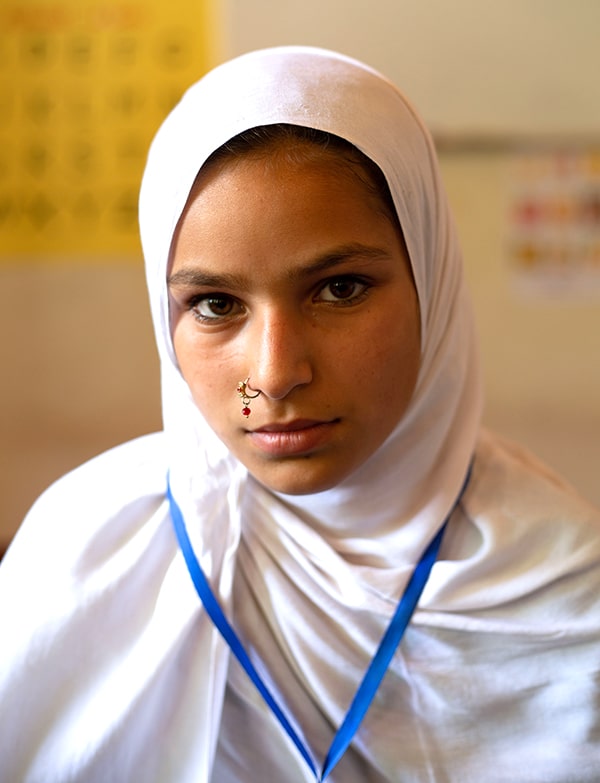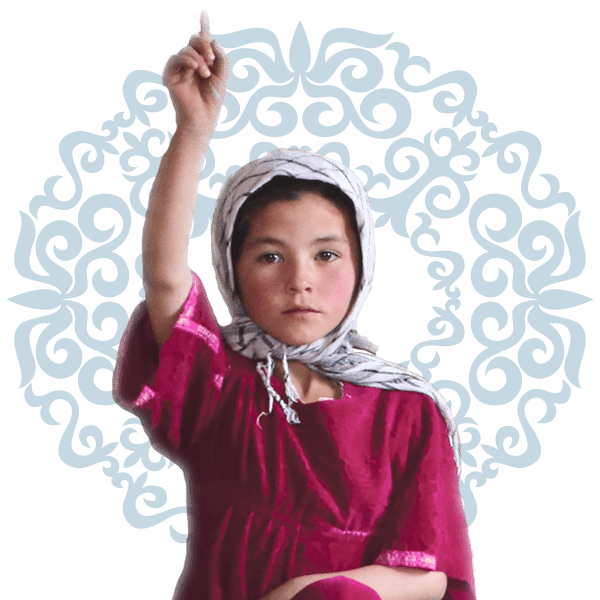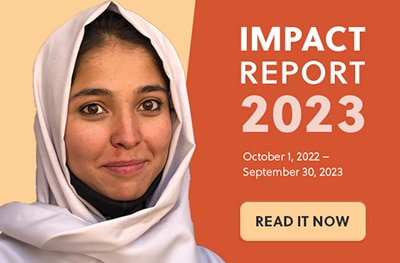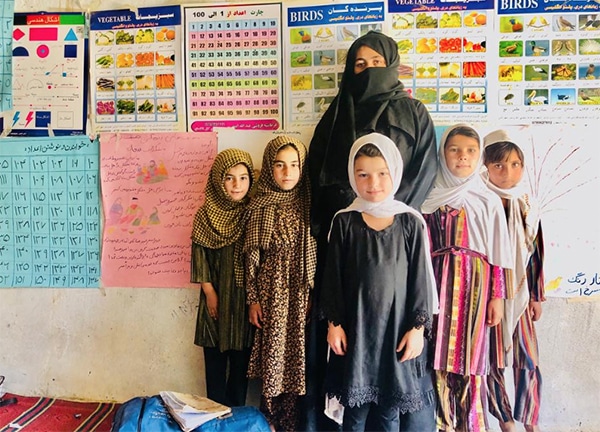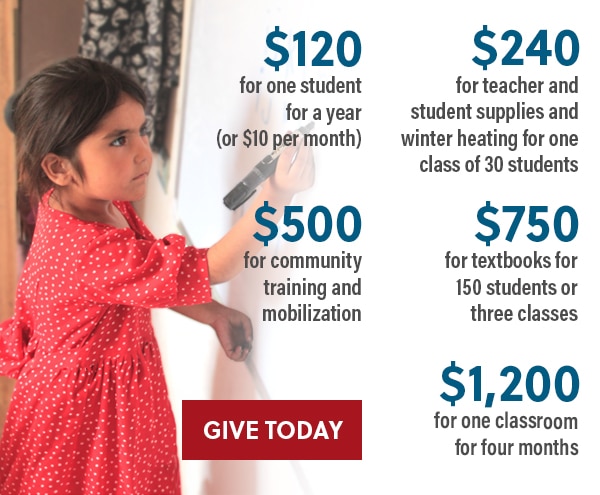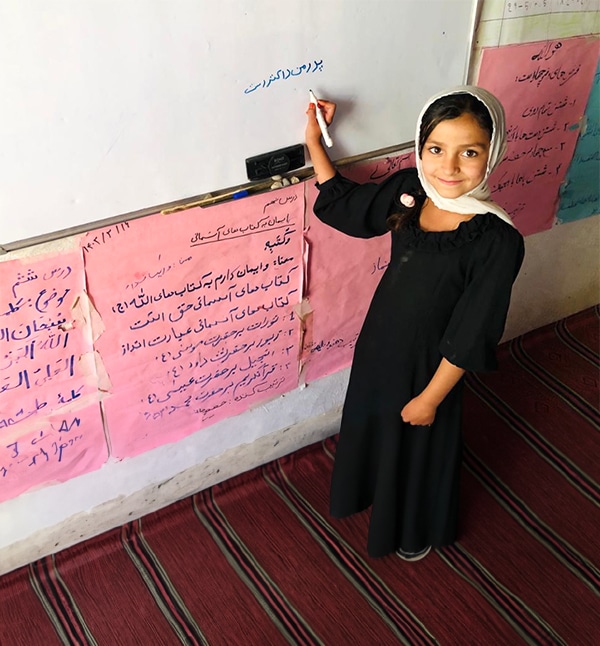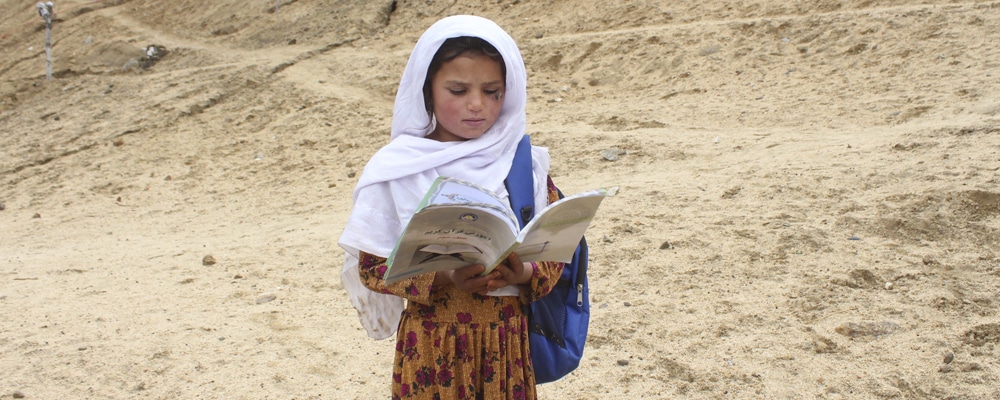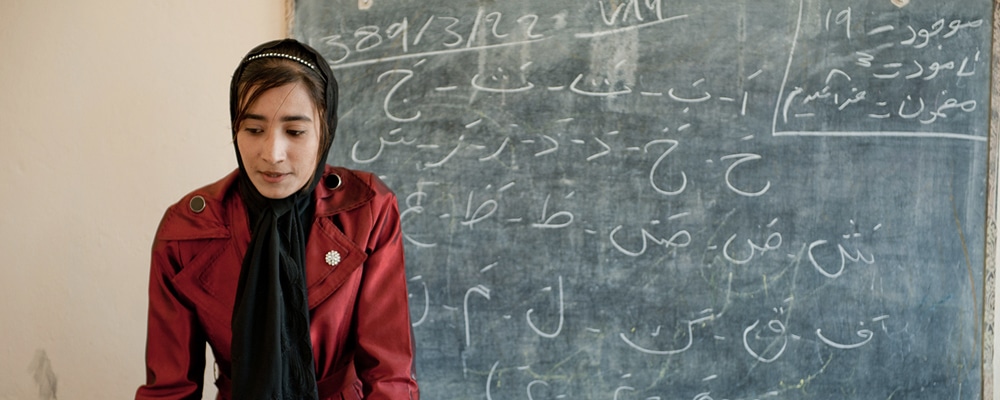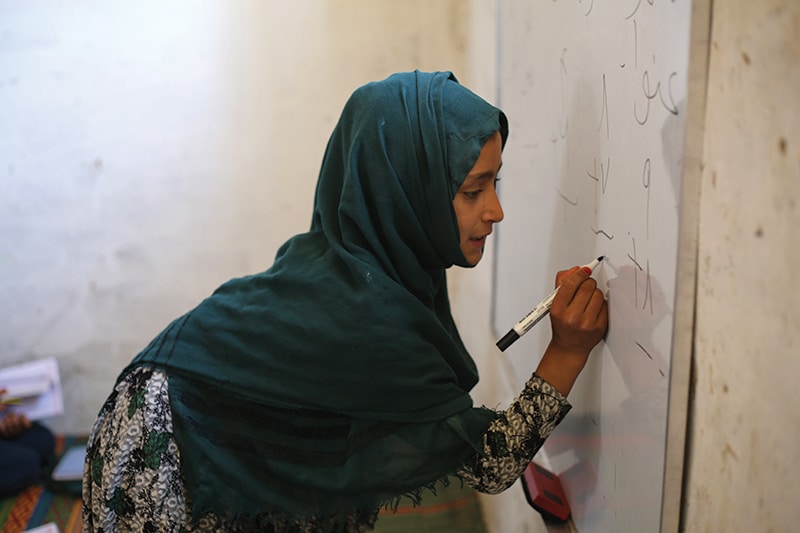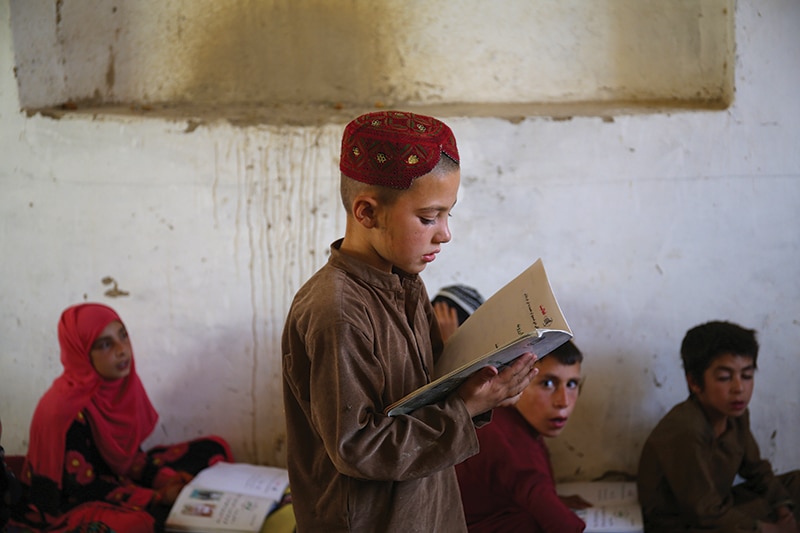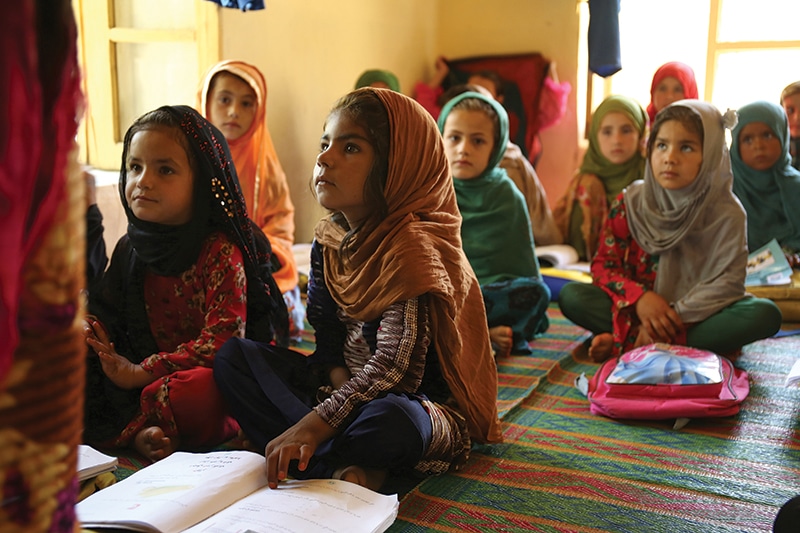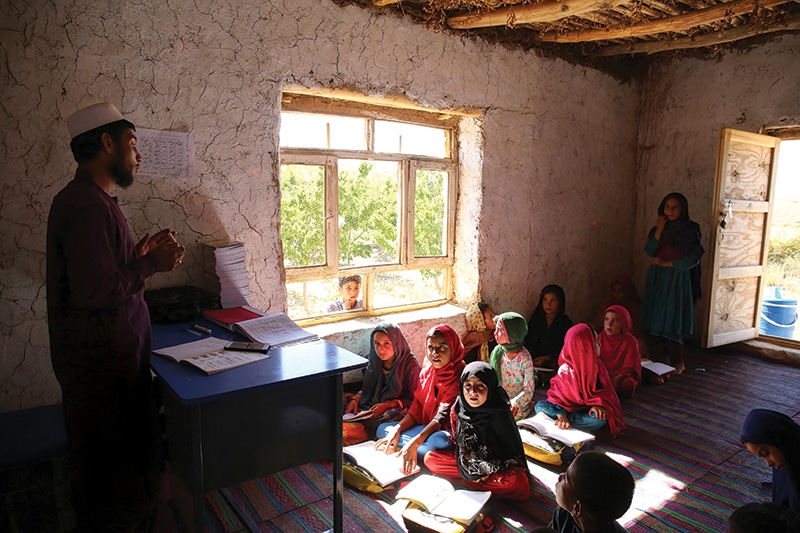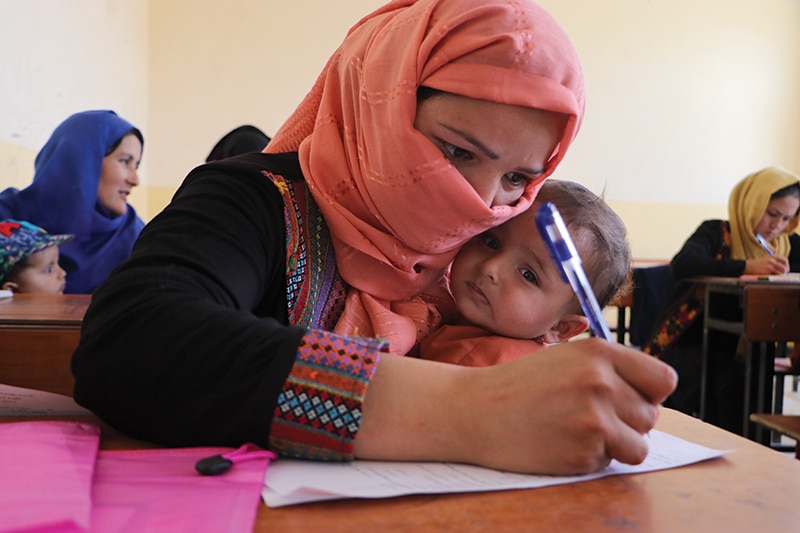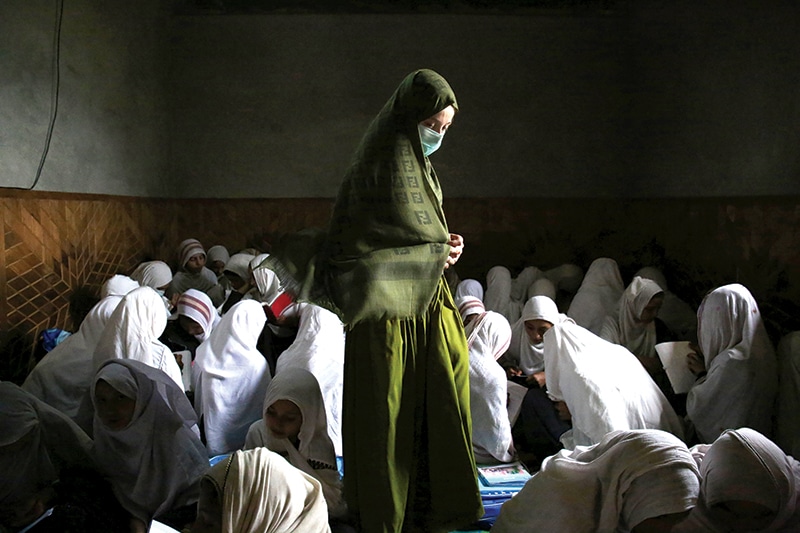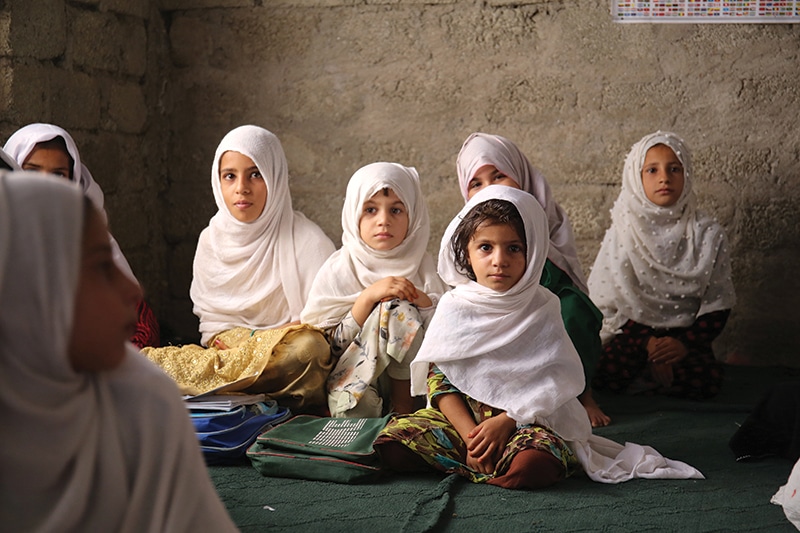What Central Asia Institute is Doing to Help
While the war may have ended, the battle is not over. Each day brave women and girls – and their families – are fighting back. They are demanding education. We must stand with them.
While many international organizations have pulled back their support, or left the country altogether, Central Asia Institute is continuing to stand with Afghan communities we’ve served for decades. The Taliban’s ban on girls’ education beyond Grade 6 has forced us to scale back educational support for older girls and women. But we’ve doubled down on enrolling children, especially girls, in primary school.
Investing in the Next Generation of Afghans
Among Central Asia Institute’s greatest concerns is that the Taliban’s harsh restrictions on education will leave an entire generation of Afghan girls (and boys) illiterate and without the skills to participate in society and build a better future. To address this, CAI has been working closely with its in-country partners to establish community-based primary schools.


